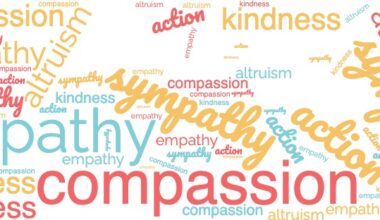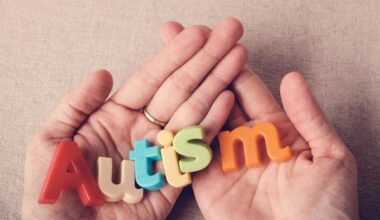When you hear the word mental illness what is the first word that comes to your mind? Let me guess, madness, schizophrenia, suicide, psychiatric, distance, or run. It’s sad to know that my guess will be about 80 percent correct and that is because we are not well informed about mental illness so the little knowledge most people have about it is based on mere misconceptions.
Even if we shout ”don’t stigmatize people with a mental illness” from today till forever it will be a waste of time if the misconceptions are not replaced with actual information.
And that’s why I am here! The aim of this content is to reduce the ignorance hovering around mental illness. To also create a safe space for people with a mental illness, making them more confident by reducing the stigma.
Key Takeaways
- Mental illness is a mental health condition that can affect (change) one’s thinking, emotions, behavior, or even moods. Having any of these conditions reflects that there is a problem in brain function.
- Depression, addiction and eating disorders are only a few of the many mental illnesses plaguing our society today.
- It is advised that once you start having symptoms you should visit a mental health professional for a proper diagnosis because that is the first step to proper treatment or management as different mental illnesses have different symptoms.
- There are various forms of treatment for different mental conditions which include, medication and therapy, or even both. See a mental health professional for a proper diagnosis before appropriate treatment can be administered.
Mental health is the psychological, emotional, and social well-being of a person. How we handle stress, relate with people, make decisions, or feel about something all depends on our mental health so when you have a mental illness it means there is an interruption in the flow of these things. And that is when you begin to notice symptoms.
Mental illness is a mental health condition that can affect (change) one’s thinking, emotions, behavior, or even moods. Having any of these conditions reflects that there is a problem in brain function (problems of communication between the neurons in the brain).
‘’Mental Illness Isn’t So Common After All’’ (Misconception)
Mental illness is much more common than we think. Do you know that 1 in 5 American adults experience a mental illness? In Nigeria, it is estimated that 20 to 30 percent of the population has a mental illness (for those diagnosed). Does it still sound uncommon to you? If you are reading this I want you to know that directly or indirectly you have come across someone who is mentally ill or that person might even be you. You might ask ”then why don’t I know”? Well, It is because a good number don’t even know they are mentally ill and the rest are scared of the stigmatization so they can’t admit it.
Common Mental Illnesses
There are various forms of mental illness but these are the ones you are most likely to see around you.
- Generalized Anxiety Disorder (GAD)
- Depression
- Addiction
- Eating disorders
- Post Traumatic Stress Disorder (PTSD)
- Bipolar Disorder
- Substance Abuse
- Attention Deficit Disorder
- Schizophrenia
Warning Signs and Symptoms of Mental Illness
The truth is that you might not be able to correctly diagnose a mental illness with just symptoms without the help of a professional. It is advised that once you start having symptoms you should visit a mental health professional for proper diagnosis because that is the first step to proper treatment or management. Different mental illnesses have different symptoms but these symptoms are common in most conditions.
- Emotional outbursts or extreme mood changes
- Binge eating or total loss of appetite
- Oversleeping or not being able to sleep at all
- Feeling fatigued even after having enough rest
- Intentional withdrawal from family and friends
- Feeling numb
- Change in sex drive
- suicidal thoughts
- Detachment from reality (Hallucinating)
- Having flashbacks of past events
- Feeling hopeless
- Having thoughts of self-harm
- Feeling constantly hopeless
- Substance Abuse
- Inability to carry out usual daily activity
- Constant nightmares
Note1: These symptoms can also occur in children especially, nightmares, changes in school performance, excessive worry, and frequent disobedience.
It is important to know that ignoring symptoms can be dangerous because mental illness just like any other illness is best treated as early as possible for better results.
Note 2: It is not advisable to get a diagnosis from an online test, except if you are with a professional.
“I lie about being sick sometimes, because people understand if you have a cold, but not if you have depression

5 Common Misconceptions About Mental Illness
Here are some 5 common misconceptions a lot of people have about mental illness.
#1 ”People with mental health conditions are violent and scary”
It’s more like saying that everybody with a stomach ache needs surgery. The truth is that most people living with mental illness end up being victims of violence rather than the perpetrators. There are people who manage mental illness without even a trace.
#2 ”Mental illness is for some particular people.”
Anybody in the world can be mentally ill, including kids. I hear people say some particular people go through these situations.
#3 ”People with mental illness cannot handle any responsibility”
Mental illness can be cured or managed. Therefore, It is possible to live normal lives, have a job, go to school, and live a family life. Especially if the person takes recovery procedures seriously.
#4 ”I don’t need the information, I don’t know anyone with a mental illness”
As I stated earlier if you are reading this you have come in contact with someone with a mental illness and it affects you because your boss might have a GAD, your neighbor might have PTSD, your friend can be depressed and if you don’t have the right information about mental health how then do you expect to help them or say the right things or put them in the right direction. Imagine if everyone who ever committed suicide was with informed parents, friends, classmates, colleagues, neighbors, and roommates, do you know how many lives would have been saved? Note: Suicide is the 10th leading cause of death
#5 “Mental illness is not treatable”
Just like any other illness, mental illness can be treated and in some cases managed for a lifetime with proper medications and treatment.
Negative Effects of Common Mental Health Misconceptions in Society

Most of the time, society’s misconceptions about mental health and illness go deeper than we realize. Effects include:
1. Reluctance to seek treatment
Mental health patients are viewed as irredeemable by society, and they are left to struggle on their own. According to them, spending money on therapy and treatment is a waste of resources because it will never yield results. Similarly, mental health patients grow to embrace the myths that define them and become hesitant to seek treatment.
2. Esteem issues
Another result of the stigma and misconceptions around mental health is that they completely destroy one’s self-esteem. Some people believe they are doomed to fail because they have a mental illness. Some people have given up and stopped trying because they believe they are not good enough.
3. Violence
Mental health patients are more likely to be bullied, harassed, and assaulted by the general public than those without mental health issues. Society treats them as a rug that may be tossed around without repercussions.
4. Fewer opportunities
People with mental illnesses are openly discriminated against in many areas, including the workplace. An employer would rather recruit a new employee than an experienced one just because they have a history of mental health issues. Mental health patients face discrimination not only in the workplace but also during school admissions and social activities.
5. Poor coverage by insurance companies
Another effect of mental health issues in society is that insurance companies are unwilling to cover patients. The insurance companies, which have bowed down to seem politically right, believe that there is no perfect medication for mental illnesses and that hospitals merely want to drain them.
Causes and Risk Factors
At this point, I understand how curious you might be to know what can cause mental illness or why you already have it. I’m right here!
1. Genetic factors (Hereditary)
Most mental illnesses are hereditary which means they can be transferred from one offspring to another. So you have to pay attention to your family’s medical history.
2. Biology
There might be a chemical imbalance. Defects or injuries in certain areas of the brain can also lead to mental illness.
3. Experiences
Some very sad or traumatic experiences can trigger a mental illness. E.g. rape, abuse, neglect.
4. Lifestyle
Going through daily stress without knowing how best to handle it, substance abuse, unhealthy relationships, and not seeing a professional early when you notice symptoms.
Do you know that emotional manipulation can lead to some mental illnesses?
“I will never understand why every organ in your body gets support and sympathy when it is ill, except for your brain.”

Little but Significant Ways to Be Kind to Someone With a Mental Illness
These are little things you can do effortlessly that will go a long way.
- Speak love, listen to them, and truly care.
- Encourage them to be consistent with their treatment or medications, and help them get the help they need.
- Always make them imagine a brighter future.
- Learn their symptoms and know their triggers.
- Read about their mental illness to understand it better.
- It might not be easy but don’t give up on them.
- Don’t say mean words to anybody, you don’t know what they might be going through. Desist from jokes like, “go and kill yourself”.
It might not be easy to care for someone with a mental illness, but they need this love and care for better treatment/recovery, just like anybody with a physical illness. If cancer patients can get all the love, don’t you think people who are mentally ill deserve to be loved too?
Mental pain is less dramatic than physical pain, but it is more common and also harder to bear. The frequent attempt to conceal mental pain increases the burden: It is easier to say ‘My tooth is aching’ than to say ‘My heart is broken.
Treatment for Mental Illness
There are various forms of treatment for different mental conditions which include, medication and therapy, or even both. See a mental health professional for a proper diagnosis before appropriate treatment can be administered. Remember you have to be very positive about getting better, then work towards it by taking your treatment procedures very seriously.
Some people who are mentally ill have gone as far as opening a blog/website/YouTube channel to help others understand mental illness better and then how to get through it. You too can be an inspiration to many.
“Ignore those who say just get over it. Healing is a process, get through it rather”.
A Word From Psychmoments
There is no other way to change the world rather than taking little impactful steps. You can be among the few changing the world today by helping to stop the stigmatization of people with a mental illness and correcting a misconception whenever you come across one. I hope the next time you hear the word “mental illness” words like love, care, kindness, and support will come to your mind.
If you have a mental illness or you are having symptoms don’t let the ignorance and misconceptions of others stop you from living a healthy and happy life. Don’t ever feel ashamed to get the help you need.
Question: Do you think this fight against mental illness stigma will be won one day?
Let’s talk about it! in the comments
- If you want to talk about your mental health to a professional you can send a mail to momentswithchika@gmail.com 📧 or visit momentswithchika.com
Getting one person informed is a step, share this content using the share button
Frequently Asked Questions
What Are the Top 5 Most Common Mental Health Issues?
- Depression
- Generalized anxiety disorder
- Panic disorder
- Obsessive-compulsive disorder
- Post-traumatic stress disorder
What Are 5 Treatment Options for Someone Dealing with Mental Disorders?
Mental Health Treatments:
- Psychotherapy: the therapeutic treatment of mental illness provided by a trained mental health professional.
- Medication
- Hospitalization
- Support Group
- Complementary & Alternative Medicine
- Self Help Plan
- Peer Support
How to Manage Mental Illness Without Medication?
Some helpful ways:
- Talking therapies.
- Mindfulness.
- Arts and creative therapies.
- Ecotherapy.
- Complementary and alternative therapies.
- Peer support.
- Look after your physical health.
Related Articles
- 31+ Words of Affirmation Examples 2024 and how to use Guide
- What to Think When Meditating: Best 2024 Practices
- How to Stop Talking With Someone Without Ghosting: My Expert Tips







